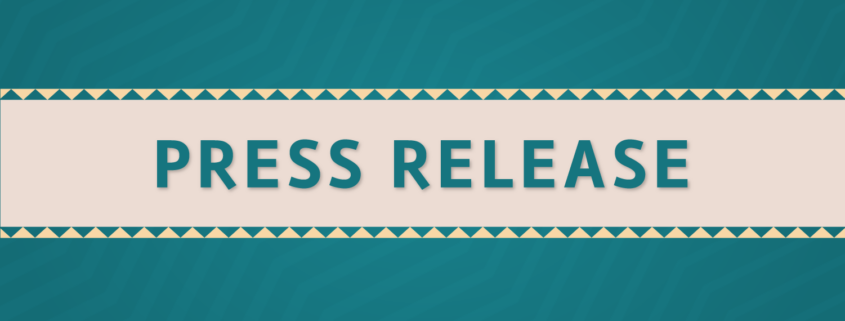PRESS RELEASE: NCAI Supports HHS Urban Confer Policy and Extending Medical Care Protections for UIOs
FOR IMMEDIATE RELEASE
Contact: Sara Williams, swilliams@NCUIH.org
NCAI passed several resolutions in support of expanding access to health care for urban Indians.
Washington, D.C. (November 16, 2020) – On Friday, November 13, 2020, the National Congress of American Indians (NCAI) passed several resolutions aimed at improving the health and welfare of American Indians and Alaska Natives living in urban areas. Two resolutions support the extension of coverage under the Federal Tort Claims Act (FTCA) to urban Indian organizations (UIOs) and the development of an urban confer policy with the U.S. Department of Health and Human Services (HHS). NCAI also reiterated their support for IHS-VA parity for UIOs in a resolution through the Veterans Committee (a resolution on IHS-VA parity for UIOs was passed in 2019). The National Council of Urban Indian Health (NCUIH) has long-advocated for parity for health services for urban Indians including FTCA for UIOs, IHS-VA parity for UIOs, and an urban confer policy. The support from NCAI is critical to continuing to advance these priorities that will improve health outcomes for all of Indian Country as we face COVID-19.
“We appreciate our partnership with NCAI and their commitment to bolstering urban Indian health to ensure that urban Natives have access to health care amid a pandemic that knows no borders,” said Francys Crevier (Algonquin), NCUIH CEO. “Families in our urban areas depend on the life-saving resources offered by our programs more than ever and this will allow their dollars to go further at a critical time. Congress and the Administration must take immediate steps to uphold the trust and treaty obligations to urban Indians by acting swiftly on these policies.”
Currently, UIOs must divert scarce dollars that could go towards health care delivery to pay for expensive malpractice insurance; this insurance can cost up to $250,000 per year for a UIO. The other components of the IHS system and even Community Health Centers receive medical malpractice coverage under the FTCA and thus do not have to divert these resources. Legislation providing FTCA coverage for UIOs enjoyed widespread and bipartisan support in the last Congressional session, including within the President’s FY 2021 proposed budget and with the endorsement of Rear Admiral Michael Weahkee.
In addition, the Indian Health Service (IHS) is currently the only federal agency that has an urban confer policy and thus must engage with UIOs regarding policy actions likely to significantly impact them. As urban Indians often have no representation outside of the Indian Health Service, they are excluded such as inclusion in the H1N1 vaccine distribution process. That means that the over 70% American Indians and Alaska Natives living in urban areas are left out of decision-making conversations that affect health outcomes.
In the most recent instance of exclusion, HHS gave IHS a deadline to choose a distribution plan for an eventual COVID-19 vaccine, either through their state or from IHS directly. This correspondence was only addressed to tribal leaders, leaving UIO leaders out of the discussion. Urban Indian organization leaders did not receive notice of the deadline, sufficient information to make a decision or a platform to ask questions and discuss concerns. The overall confusion and delay further demonstrates the real need for HHS to develop an urban confer policy. The Resolution PDX-20-021 calls for the Secretary of HHS to implement its urban confer policy across the Department and its divisions.
The IHS-VA parity for UIOs is a priority that has received broad support across Indian Country including from last year’s resolution at NCAI. Allowing urban Native veterans to have improved access to critical health services upholds the US government’s obligations to these heroes as Natives and as veterans.
Next Steps
NCUIH will continue to advocate to Congress to enact legislation to provide FTCA for UIOs (H.R. 6535 / S. 3650). Earlier this year, H.R. 6535 passed out of the House Committee on Natural Resources and S. 3650 passed the Senate Committee on Indian Affairs. Parity for urban Native veterans through the Coverage for Urban Indian Health Providers Act (H.R. 4153/ S. 2365) has also passed the House Natural Resources Committee. NCUIH is working with Congress to see if these provisions can be passed before the start of 2021 so that UIOs can start the new year with expanded resources. NCUIH will also work with Congress to develop legislation on an urban confer policy and coordinate with the Administration.
###
The National Council of Urban Indian Health (NCUIH) is the national non-profit organization devoted to the support and development of quality, accessible, and culturally-competent health and public health services for American Indians and Alaska Natives (AI/ANs) living in urban areas. NCUIH is the only national representative of the 41 Title V Urban Indian Organizations (UIOs) under the Indian Health Service (IHS) in the Indian Health Care Improvement Act (IHCIA). NCUIH strives to improve the health of the over 70% of the AI/AN population that lives in urban areas, supported by quality, accessible health care centers.






Leave a Reply
Want to join the discussion?Feel free to contribute!